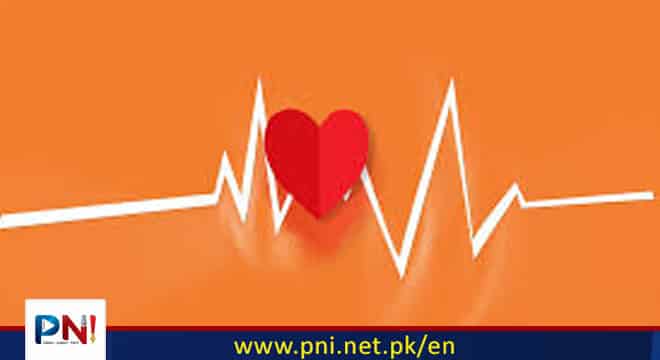ISLAMABAD, March 22 (Online): Researchers report that young adults with good heart health scores have a reduced disease risk of 65%.
Those who improved their heart health scores also lowered their risk of heart and kidney disease.
The researchers noted, however, that only 1 percent of subjects in their study had “ideal” heart health.
Maintaining a heart-healthy lifestyle not only dramatically reduces your odds of developing heart disease and stroke, but it can cut your risk of kidney disease as well.The according to preliminary findings from a new study that were presented this week at the American Heart Association’s Epidemiology and Prevention¦Lifestyle and Cardiometabolic Scientific Sessions 2024Trusted Source in Chicago.
The research has not been published yet in a peer-viewed journal.The researchers say their study not only highlights the benefits of being physically active as well as maintaining a healthy weight, not smoking, and controlling your blood pressure, cholesterol, and blood sugar, but also the strong links between heart and kidney health.
“Most of the risk factors for cardiovascular disease also correlate to kidney disease,” Dr. Arun Manmadhan, an assistant professor of cardiology at the Vagelos College of Physicians and Surgeons at Columbia University and an attending physician at New York-Presbyterian Hospital/Columbia University Irving Medical Center, told Medical News Today.
How heart health and kidney health are linked
In their study, South Korean researchers studied about 4 million adults under age 40 over a 12-year period.
In doing so, they said they found that those who had “ideal” cardiovascular health were 65% less likely to develop heart or kidney disease or have a stoke when compared with people who have low heart health scores.
“These two diseases should be prevented together because they often coexist or increase the likelihood of one another,” said Dr. Hokyou Lee, a lead study author and an associate professor of preventive medicine at Yonsei University College of Medicine in Seoul, in a press statementTrusted Source. “However, the importance of ideal heart health behaviors and factors in young adults have often been overlooked due to their lower short-term risk of cardiovascular and kidney diseases.”
Notably, individuals who had poor scores at the start of the study but took steps to improve their cardiovascular health were also able to reduce their risk of disease compared to those who had persistently poor scores.
“Maintaining good cardiovascular health is not a sprint,” said Manmadhan, who was not involved in the research. “It needs to be lifelong and durable.”
Overall, the risk of developing cardiovascular or kidney disease decreased gradually as heart health scores improved.
Excellent heart health is difficult to achieve
Few of the study subjects — less than 1% — had ideal heart scores and “about half of those with perfect or near-perfect cardiovascular health eventually had lower heart health scores within a few years,” said Lee.
“Our study highlights the importance of achieving ideal cardiovascular health during young adulthood and maintaining or improving it throughout life,” he said. “More effort is needed to raise awareness among young adults about implementing and maintaining heart-healthy lifestyle behaviors early in life to help them live longer, healthier lives.”
Treating heart disease and kidney disease together
Manmadhan said that, ideally, heart and kidney disease should be treated together.
Notably, Columbia University Irving Medical Center maintains a special practice on cardionephrology in order to provide holistic treatment for heart and kidney diseases.
“Of all the medical specialties, nephrologists are the ones we work most closely with,” Manmadhan said. “The kidneys aren’t just blood filters, they also secrete hormones and regulate blood pressure. This study is a reminder that there is a lot of interplay between the organs.”
Dr. Majid Basit, a cardiologist with the Memorial Hermann Medical Group in Houston, said that high blood pressure — a well-known cause of cardiovascular disease — is also a leading cause of kidney disease.
“High blood pressure is a great indicator of future problems with the kidneys,” Basit, who wasn’t involved in the new study, told Medical News Today.
He added that screening younger people for signs of hypertension as well as more organ-specific markers such as elevated creatine levels could help delineate kidney disease risk alongside cardiovascular risk
“We do standard testing for kidney disease but don’t make a big deal out of it,” Basit noted. “We should be doing more aggressive messaging like we do for heart disease.”
Follow the PNI Facebook page for the latest news and updates.









